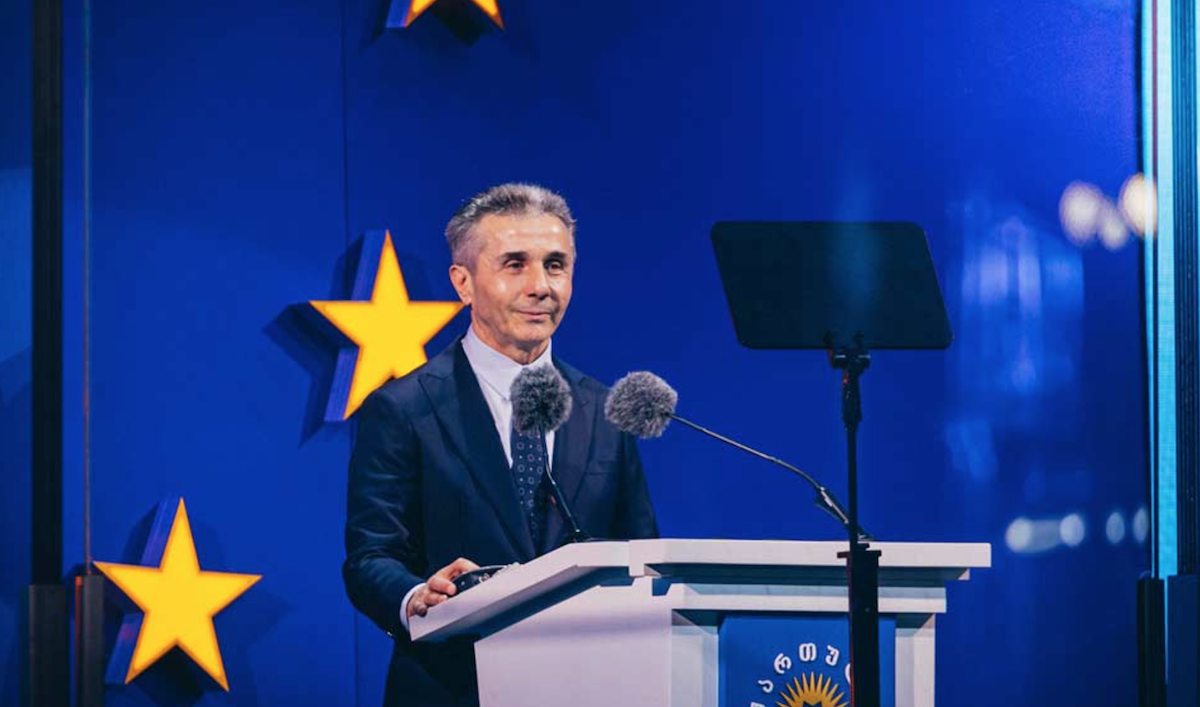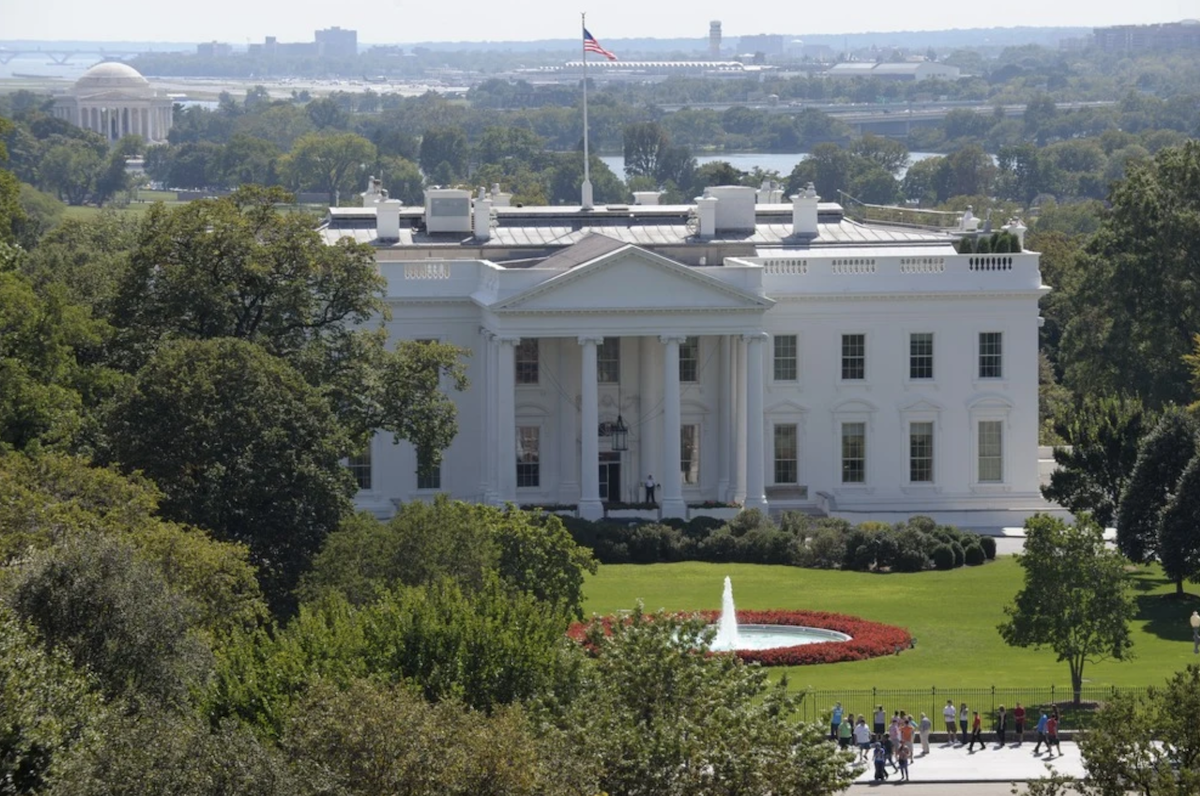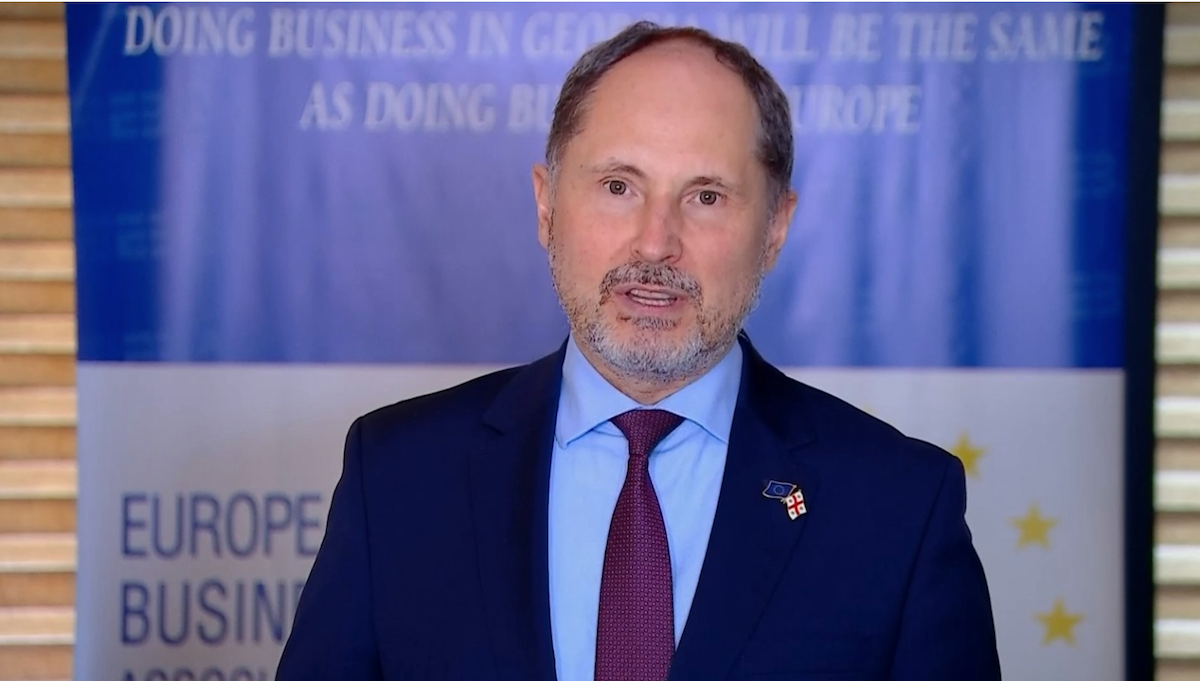
Sanctions Against Bidzina Ivanishvili
Voice of America reports, based on its sources (high-ranking White House officials) and two other sources close to the U.S. administration, that the United States has developed sanctions against Bidzina Ivanishvili, the honorary chairman of “Georgian Dream” and a shadow ruler of Georgia.
The U.S. is prepared to consider implementing these sanctions in the near future.
Sources speaking on condition of anonymity informed Voice of America that the U.S. Departments of Treasury and State are working on a sanctions package.
One source stated:
“We have information that [Bidzina Ivanishvili] has taken steps to develop relations with Russian oligarchs and to provide Russia with better access to the Georgian market. Essentially, he has acted under the direction of Russian intelligence services.”
According to a senior U.S. government official, the basis for the sanctions is Executive Order 14024. This order, he stated, “has broad authorities regarding individuals who engage in actions undermining democratic institutions and values or participate in international corruption.
There are several actions that could warrant sanctions if they benefit the Russian Federation.”
Executive Order 14024, issued on April 15, 2021, by President Joe Biden and later amended, establishes a new national emergency under which sanctions may be imposed against individuals and entities furthering specified harmful foreign activities of the Russian Federation. These activities include undermining democratic processes, cyberattacks, election interference, and other destabilizing actions in foreign states.
“The U.S. government has prepared a sanctions package and is ready to implement it: there are several issues, including the undermining of democratic institutions and international corruption, that benefit the Russian Federation,” the source reported.
According to the executive order, sanctions will be imposed in the following cases:
- Individuals or organizations involved in malicious cyber activities or disinformation campaigns.
- Those participating in the undermining of democratic institutions or processes in the U.S. and its allies.
- Organizations or individuals working in key sectors of the Russian economy, such as defense and energy.
- Individuals or organizations supporting Russia’s occupation or aggression in Ukraine.
- Anyone responsible for human rights violations, corruption, and repression linked to Russia.
It is still unclear when (or if) the sanctions package will be implemented.
However, the work is complete.
“What’s new is that it was previously just a topic of discussion, but now the package is ready for execution,” a source close to the administration told “Voice of America.”
The timing of the sanctions remains uncertain, and senior U.S. officials have not clarified whether they will be enacted before or after the upcoming elections on October 26.
The U.S. Department of the Treasury has sanctioned Georgian Special Forces Chief Zviad Kharazishvili (known as Khareba), his deputy Mileri Lagazauri, and pro-Russian Alt-info leaders Konstantin Morgoshia and Zurab Makharadze.
The State Department has also imposed visa restrictions on over 60 Georgian government and parliament members, including their families, for “undermining democracy.”
Notably, Kharazishvili’s deputy was also added to the “Magnitsky List,” linking both officials to violence against opponents of the “foreign agents” law. The U.S. Department of the Treasury has stated that all assets of these individuals within the U.S. or under U.S. jurisdiction will be blocked.
The U.S. Department of the Treasury announced that all property and assets of these individuals located in the U.S. or in countries under U.S. jurisdiction will be frozen.
Earlier, on June 6, the State Department announced a sanctions package that includes visa restrictions, initially affecting about 30 people.
On May 24, U.S. Secretary of State Antony Blinken introduced a new visa restriction policy targeting Russian law enforcement officials. Blinken also stated that the U.S. will fundamentally reassess its relationship with Georgia.



